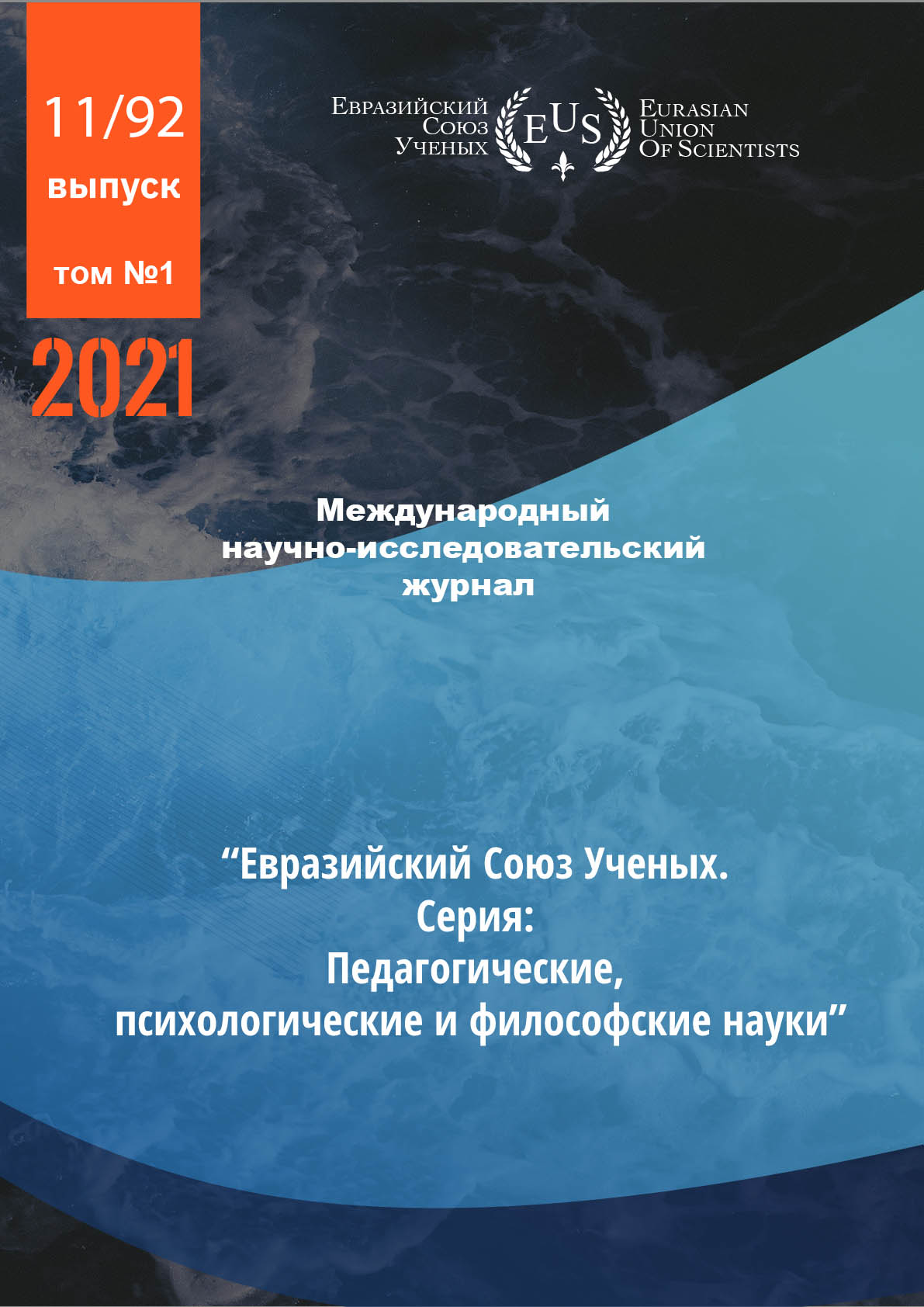PSYCHOLOGICAL READINESS OF FIRST GRADERS TO LEARN SEMANTIC READING AT SCHOOL
Abstract
The article examines the readiness of first graders to learn semantic reading. A semantic reading is an activity, it is based on reading technique. We identified two groups of students: average readd highly ready ang to learn semantic reading. The article presents the main areas of assistance in the formation of psychological readiness for learn semantic reading.
References
Akhutina T.V. Neuropsychological diagnostics, examination of writing and reading of primary schoolchildren / T.V. Akhutina, O.B. Inshakova. – М.: Sfera, 2008. – 125 p.
Egorov T.G. Essays on the psychology of learning to read / T.G. Egorov. – M.: Uchpedgiz, 1953. – 144 р.
Klychnikova Z. I. Psychological characteristics of perception and understanding of written speech (psychology of reading) / Z. I. Klychnikova. –Moscow, 1974. – 49p.
Nizhegorodtseva N.V. Psychological readiness of children to go to school / N.V. Nizhegorodtseva. – Моscow, 2001. – 483 p.
Federal state educational standart of primary education// Reading. - М., 2009.
Shadrikov V.D. Problems of system genesis of professional activity / V.D. Shadrikov. – М.: Nauka, 1982. – 183 p.
Elkonin D.B. Ways to teach children to read / D.B. Elkonin // Mental development in years of age: selected psychological works. – М.: Publishing house «Institute of Practical Psychology», Voronezh: NPO «MODEK», 1997. – P. 323-349.
Wimmer H. The double-deficit hypothesis and difficulties in learning to read a regular orthography / H. Wimmer, H. Mayringer, K. Landerl // Journal of Educational Psychology. — 2000. — № 92. — P. 668—680
CC BY-ND
A work licensed in this way allows the following:
1. The freedom to use and perform the work: The licensee must be allowed to make any use, private or public, of the work.
2. The freedom to study the work and apply the information: The licensee must be allowed to examine the work and to use the knowledge gained from the work in any way. The license may not, for example, restrict "reverse engineering."
2. The freedom to redistribute copies: Copies may be sold, swapped or given away for free, in the same form as the original.





